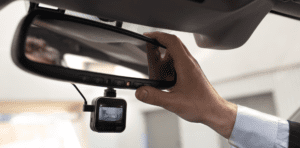Compare cheap car insurance
✔ Compare cheap car insurance quotes
✔ Over 110 insurance providers
✔ Get a quote in minutes
✔ Save up to £504*
Following a car accident, it’s common to feel stressed and confused, which might lead you to forget to inform your car insurance provider about the incident.
- What is the Car Insurance Claim Process?
- How Long Does an Insurance Claim Take?
- How Long After a Car Accident Can You Claim for Damage in the UK?
- Do I Have to Make a Claim If I Have an Accident?
- Why Do I Need to Tell My Insurance Provider About an Accident?
- What Information Will My Insurance Provider Need If I Make a Claim?
- Will Making a Claim Affect the Cost of My Car Insurance?
- Will Making a Claim Affect My No-Claims Discount (NCD)?
- Frequently asked questions
Our useful guide outlines all the essential steps and information you need to make a car insurance claim effectively.
What is the Car Insurance Claim Process?
Navigating the car insurance claim process following an accident is crucial to ensure everything is handled correctly and efficiently.


At the Scene
Essential Steps to Take
- Emergency Response: If there are any injuries, immediately call the police and ambulance. This is crucial for both medical assistance and legal documentation.
- Avoid Admitting Liability: Refrain from admitting fault at the scene. Statements made here can be significant in the event of insurance claims or legal issues.
- Exchange Information: Collect names, addresses, car registration numbers, and insurance details of other drivers. This information is essential for your claim.
- Witness Details: Obtain contact information from any witnesses and passengers, as their accounts may be important in substantiating your claim.
- Document the Scene: Use your phone to take photos or record video footage of the accident, including vehicle positions and damage, which can be vital in supporting your claim.
- Record Accident Details: Note the exact location, date, and time of the accident.
- Police Involvement: If the police attend the scene, ensure you receive a copy of their report and a crime reference number.
After the Accident
Managing the Aftermath
- Prepare Insurance Documents: Have your insurance documents readily available for reference.
- Contact Your Insurer: Reach out to your insurance provider’s claims team as soon as possible. Most insurers have a 24/7 helpline.
- Describe the Incident: Provide a clear and accurate account of the event. Include details of everyone involved.
- Complete a Claims Form: Many insurers allow or require you to fill out a claims form, sometimes available online. Attach any relevant photos or videos.
- Approved Repairs: Wait for instructions from your insurer before repairing your car. Repairs done at unapproved garages may not be covered.
Considerations for Making a Claim
Deciding Whether to Claim
- Impact on Insurance Costs: Making a claim can increase future insurance premiums. Assess whether it’s financially prudent to make a claim or cover the costs yourself.
- Obligation to Inform Insurer: Regardless of whether you decide to claim, you must inform your insurer about the accident. This is a standard requirement in insurance policies.
Additional Information and Precautions
- Car Safety Checklist: Assess your car for safety post-accident.
- Cover for Specific Damages: Understand your policy’s stance on specific damages like flood damage.
- Future Insurance Implications: Be aware of how an accident and claim might affect next year’s insurance premium.
How much can you save on your car insurance?
How Long Does an Insurance Claim Take?
Reporting the Incident
The timeframe for an insurance claim can vary widely, often ranging from a few days to several months. A key factor influencing this duration is the speed of reporting the incident.


Promptly notifying your insurer can significantly expedite the claims process. The earlier you file the claim, the sooner the insurance company can commence their procedures.
Nature of the Incident
Another crucial aspect is the seriousness of the incident. Minor incidents like small dents or scratches on a vehicle typically result in quick and uncomplicated claims.
In contrast, major incidents, such as significant property damage or personal injury, can lead to a prolonged claims process. This is due to the increased complexity and the need for thorough investigations.
Importance of Evidence
The availability and quality of evidence play a significant role in the efficiency of the claims process. Adequate evidence supporting your claim can make the process smoother and more straightforward. It helps the insurer assess the situation accurately and reduces the likelihood of disputes.
Disputes and Challenges
Disputes or challenges to your claim can delay the process significantly. If another party contests your claim or if there is disagreement over the details of the incident, additional investigations and negotiations may be required, prolonging the resolution.
Role of Dashcam Footage
Dashcam footage is becoming an increasingly valuable tool in insurance claims. This type of evidence is gaining wide acceptance and can be instrumental in resolving disputes.
Dashcam footage provides clear and objective details about an accident, which can be crucial in determining fault and facilitating a quicker settlement of claims.
Key Takeaway
The duration of an insurance claim is influenced by various factors such as the speed of reporting, severity of the incident, quality of evidence, and the presence of any disputes. Utilising tools like dashcams can aid in providing clear evidence, potentially speeding up the claims process.
How much can you save on your car insurance?
How Long After a Car Accident Can You Claim for Damage in the UK?
Understanding the Time Limit for Car Accident Claims
In the UK, there is a specific time limit within which you must file a claim for damage resulting from a car accident. This limit is crucial to adhere to, as failing to do so can invalidate your claim.


Standard Time Limit for Claims
Policy-Specific Guidelines
- Defined in Policy Documents: The exact time limit for filing a claim after a car accident is typically outlined in your insurance policy documents. This period can vary between insurers.
- Importance of Prompt Action: It is essential to review your policy documents and follow the specified instructions promptly. Delaying beyond the stated period may lead to the rejection of your claim.
General Guidelines and Legal Time Limits
Broader Legal Framework
- Typical Time Frame: Generally, in the UK, you have up to three years from the date of the car accident to start a claim process for personal injury. For damage to the vehicle, the time limit might be shorter, often within one year.
- Statute of Limitations: These time frames are guided by the UK’s statute of limitations, which sets the maximum time after an event within which legal proceedings may be initiated.
Importance of Immediate Reporting
Reporting to Insurance Providers
- Early Notification: Even if the claim is not immediately filed, it’s crucial to notify your insurance provider about the accident as soon as possible, preferably within a few days.
- Documentation and Evidence: Prompt reporting helps in gathering and preserving evidence, which can be critical in supporting your claim.
Circumstances Affecting the Time Limit
Special Considerations
- Extended Deadlines: In some special circumstances, such as if the injured party is a child or if there are issues identifying the driver at fault, the time limit for claiming may be extended.
- Insurer’s Discretion: Some insurers may have provisions for extending claim deadlines in exceptional cases. It’s advisable to communicate directly with your insurer if you believe your situation warrants an extension.
How much can you save on your car insurance?
Do I Have to Make a Claim If I Have an Accident?
Deciding whether to file a claim after a car accident involves understanding your insurance policy’s requirements and evaluating the cost-effectiveness of making a claim.


Notification Requirement to Insurer
Informing Your Insurance Provider
- Mandatory Reporting: Even if you decide not to make a claim, it’s essential to inform your insurance provider about the accident. This requirement is typically stated in the terms and conditions of your policy.
- Risk of Policy Invalidity: Failing to report an accident, regardless of fault, could invalidate your insurance policy. This can have serious implications for future insurance cover and claims.
Evaluating Whether to Claim
Assessing the Cost-Benefit
- Comparing Costs: In some instances, it might be more economical to cover the cost of repairs yourself. This is particularly relevant if the repair costs are lower than your insurance excess.
- Example Scenario: For instance, if your insurance excess is £500 and the repair costs are only £200, making a claim may not be financially beneficial as you would pay more out of pocket through the excess.
Communicating with Your Insurer
Properly Documenting Your Decision
- Written Notification: If you choose not to make a claim, it’s advisable to communicate this decision to your insurer in writing. This can be done through an email, clearly stating that the information provided is solely for notification purposes and not for claiming.
- Clarification of Intentions: This step helps to avoid any misunderstandings with your insurance provider regarding your intentions and maintains a clear record of communication.
Factors to Consider Before Deciding
Important Considerations
- Future Premiums: Consider the potential impact of a claim on future insurance premiums. Claims can often lead to increased premiums in subsequent years.
- Extent of Damage and Liability: Assess the extent of damage to your vehicle and any potential liability issues. In cases of significant damage or where liability is disputed, making a claim might be more appropriate.
- Legal Obligations: Be aware of any legal obligations that may arise from the accident, especially if there are injuries or third-party damages involved.
Seeking Professional Advice
Guidance in Complex Situations
- Consulting Experts: In complex situations, such as disputes over fault or substantial damage, seeking advice from legal or insurance professionals can be beneficial to make an informed decision about claiming.
How much can you save on your car insurance?
Why Do I Need to Tell My Insurance Provider About an Accident?
Informing your insurance provider about any accident you’re involved in is crucial for several reasons, ranging from potential future claims to ensuring your rights are protected.


Preparation for Potential Claims
Handling Future Personal Injury Claims
- Long-Term Liability: Personal injury claims related to car accidents can be filed years after the incident. By notifying your insurance provider early, they can prepare and gather necessary evidence to handle any future claims effectively.
- Legal Readiness: Early notification allows your insurer to be legally prepared if a claim is made against you, ensuring they have all the relevant information to defend or settle the claim appropriately.
Protecting Your Rights and Interests
Avoiding Unauthorised Settlements
- Preventing Uninformed Compensation: Notifying your insurance provider ensures they won’t settle any claims without your knowledge. This is important to protect your interests, especially if you are not at fault or if the circumstances of the accident are disputed.
- Informed Decision Making: Your insurer can only make informed decisions about compensation or legal steps if they are fully aware of the accident details.
Maintaining Policy Validity
Upholding Your Insurance Agreement
- Policy Compliance: Most insurance policies have clauses that require you to report any accidents, regardless of whether you intend to make a claim. Failure to do so could be seen as a breach of your policy terms.
- Avoiding Policy Cancellation: Non-disclosure of an accident can lead to policy cancellation or difficulties in renewing your insurance, which can have long-term implications for your coverage.
Considerations for Premium Adjustments
- Premium Adjustments: Informing your insurer about an accident can also affect your future insurance premiums. Insurers use your claims history and accident reports to assess your risk profile and adjust premiums accordingly.
- Transparency Benefits: Being transparent with your insurance provider about accidents can sometimes work in your favour, especially if you were not at fault, as it demonstrates responsible behaviour.
Documenting the Incident
Importance of Accurate Records
- Accurate Incident Reporting: Providing detailed information about the accident to your insurer helps create an accurate record. This can be valuable in disputes or if any legal issues arise later.
- Evidence Collection: Your insurer may assist in collecting evidence or provide guidance on what information and documentation are necessary to support your account of the accident.
How much can you save on your car insurance?
What Information Will My Insurance Provider Need If I Make a Claim?
When making a claim with your insurance provider, they require specific information to process your claim efficiently and accurately. Providing comprehensive details is crucial to ensure a smooth claims process.


Essential Information for Insurance Claims
Key Details to Provide
- Policy Number: This is a unique identifier for your insurance policy and is essential for your insurer to locate and verify your cover.
- Personal Details: Your name, contact information, and potentially other personal details like your driving license number.
- Details of Other Parties Involved: Include the registration numbers, insurance details, and contact information of any other drivers involved in the accident.
- Witness Information: Provide names and contact details of any witnesses to the accident. Their accounts can be crucial in determining fault and liability.
- Registered Keeper Details: If the other driver is not the registered keeper of the vehicle involved, you’ll need the details of the person who is.
Additional Information about the Accident
Specifics of the Incident
- Time, Date, and Location: Precise information about when and where the accident occurred, including the specific address or road names.
- Weather and Road Conditions: Describe the weather conditions and any relevant road conditions, like roadworks or poor lighting, at the time of the accident.
- Crime Reference Number: If the claim involves theft or vandalism, a crime reference number from the police is necessary.
Post-Accident Actions
Steps to Follow
- Contacting the Claims Team: Reach out to your insurance provider’s claims team, which is usually available through a dedicated helpline.
- Guidance Through the Process: The claims team will guide you through the claims process, answering any queries and advising you on the next steps.
- Document Submission: Be prepared to submit or upload any relevant documents or evidence, such as photographs of the accident scene and damage to your car.
Importance of Accurate and Prompt Reporting
Ensuring Efficient Claim Processing
- Timely Notification: Notify your insurer as soon as possible after the accident to avoid any delays in processing your claim.
- Accuracy of Information: Ensure all information provided is accurate and comprehensive. Inaccuracies can lead to delays or complications in your claim.
Assistance with Complex Claims
Support for Challenging Situations
- Complex Claim Support: In cases of complex claims, such as disputes over fault or significant damages, your insurer may provide additional support or legal advice.
How much can you save on your car insurance?
Will Making a Claim Affect the Cost of My Car Insurance?
When you make a claim on your car insurance, it is probable that your insurance premiums will increase at the time of renewal.
This increase often occurs regardless of whether the accident was your fault or not. The fundamental reason for this rise in cost is the perceived risk associated with insuring you post-claim.


If your insurance provider is unable to recover the full costs from the other driver’s insurance in the event of an accident, this often results in a hike in your premium. Insurance companies assess risk based on past incidents, and a claim is typically seen as a marker of increased risk.
The Effect of Not Claiming
Interestingly, even if you choose not to make a claim, there might still be an increase in your insurance cost. This scenario can unfold if you’ve been involved in an accident.
Some insurers consider drivers who have had an accident as having a higher likelihood of future incidents, thus raising the risk factor and, consequently, the premium.
Importance of Reporting Accidents
Despite the potential for increased costs, it’s crucial to inform your insurance provider about any accidents you’re involved in. Failing to report an accident can have severe consequences.
If you need to make a claim later and the insurer wasn’t informed about the incident, they might reject the claim. Worse still, your entire insurance policy could be invalidated, leaving you with significant financial liabilities. This outcome can be far more costly than any premium increase.
Key Takeaway
While making a claim or even being involved in an accident can increase your car insurance costs, the risks of not informing your insurer far outweigh the potential rise in premiums.
It’s important to be transparent with your insurance provider to ensure full cover and avoid any complications in the future.
How much can you save on your car insurance?
Will Making a Claim Affect My No-Claims Discount (NCD)?
Impact of a Claim on a Protected No-Claims Discount
If you have protected your no-claims discount (NCD), making a claim typically does not affect the accumulated years contributing to your NCD.
Protecting your NCD means that, despite making a claim, the number of years you’ve gone without making a claim remains unaffected. This protection is a feature you can opt for in your insurance policy, usually at an additional cost.


However, it’s important to note that while the NCD itself remains intact, the overall car insurance premium may still see an increase.
This is because the premium is initially calculated based on several risk factors, including your driving history, vehicle type, and area of residence, before the NCD is applied. A claim could signal to the insurer an increased risk, leading to a higher premium, irrespective of the NCD.
Consequences on an Unprotected No-Claims Discount
In contrast, if you haven’t protected your NCD and you make a claim, especially for an accident that was deemed your fault, it will almost certainly impact your NCD.
In such cases, the number of claim-free years accumulating towards your NCD may be reduced or reset. This reduction directly affects the discount you receive on your insurance premium, often leading to a noticeable increase in your insurance costs.
Overall Implications
The decision to protect your NCD should be made considering both the additional cost of protection and the potential savings on future premiums.
While protecting your NCD can safeguard your discount even after a claim, it does not prevent an overall increase in the premium due to other risk factors.
Understanding these nuances is key when evaluating your car insurance options and managing potential costs.
How much can you save on your car insurance?
Frequently asked questions
The time frame for an insurance payout following an accident can vary significantly based on the nature of your claim.
For claims that are straightforward and uncomplicated, you might expect to receive your payment rather promptly, often within about a week.
However, if your case is more complex, such as when the cause of the accident is ambiguous, the process could take considerably more time to resolve.
There are instances where you might find it more beneficial to cover repair costs personally, rather than filing a claim with your insurance. One key reason for this could be to preserve your no-claims discount.
If the cost of repairs is lower than the sum of your compulsory and voluntary excess, it’s likely that your insurance provider will expect you to handle the expenses yourself.
The scope of your claim is determined by the level of your insurance cover.
With comprehensive cover, you’re entitled to claim for a variety of issues, including:
- Repair costs for your car, irrespective of whether you were at fault.
- Third-party damage to other vehicles and injuries to others.
- Injuries to yourself and your passengers.
- Theft of your vehicle.
If your policy is third-party, fire, and theft, your claims can be made for:
- Third-party damage or injuries.
- Fire damage to your vehicle.
- Theft of your vehicle.
For those with third-party only insurance, claims are limited to:
- Third-party damage or injuries.
In the event that you’re hit by an uninsured driver, the process for making a claim depends on your type of insurance cover.
If you have comprehensive insurance, you can usually claim through your insurance provider. It’s important to check your policy for uninsured driver cover, which might protect your no-claims discount. Additionally, you shouldn’t need to pay any excess if the accident was clearly the fault of the uninsured driver.
For those with third-party, fire and theft (TPFT) or third-party policies, you still have options for claiming. One common method is to apply for compensation through the Motor Insurance Bureau (MIB).
When facing a rejected insurance claim, it’s important to follow a structured approach:
- Review your policy carefully to confirm that your claim falls within the covered scenarios.
- Ensure that all the information you provided in your claim is accurate and complete.
- Contact your insurance provider in writing to discuss the rejection.
- If you’re dissatisfied with their response, proceed to lodge a formal complaint using the designated complaints procedure of your insurance provider.
- In the event that these steps don’t resolve the issue, you have the option to escalate the matter to the Financial Ombudsman Service.
A car insurance claim is recorded on the Claims and Underwriting Exchange (CUE) database and remains there for six years. Similarly, any incidents that you’ve reported, even if you haven’t made a claim for them, will also stay on your driving record for a duration of six years.










